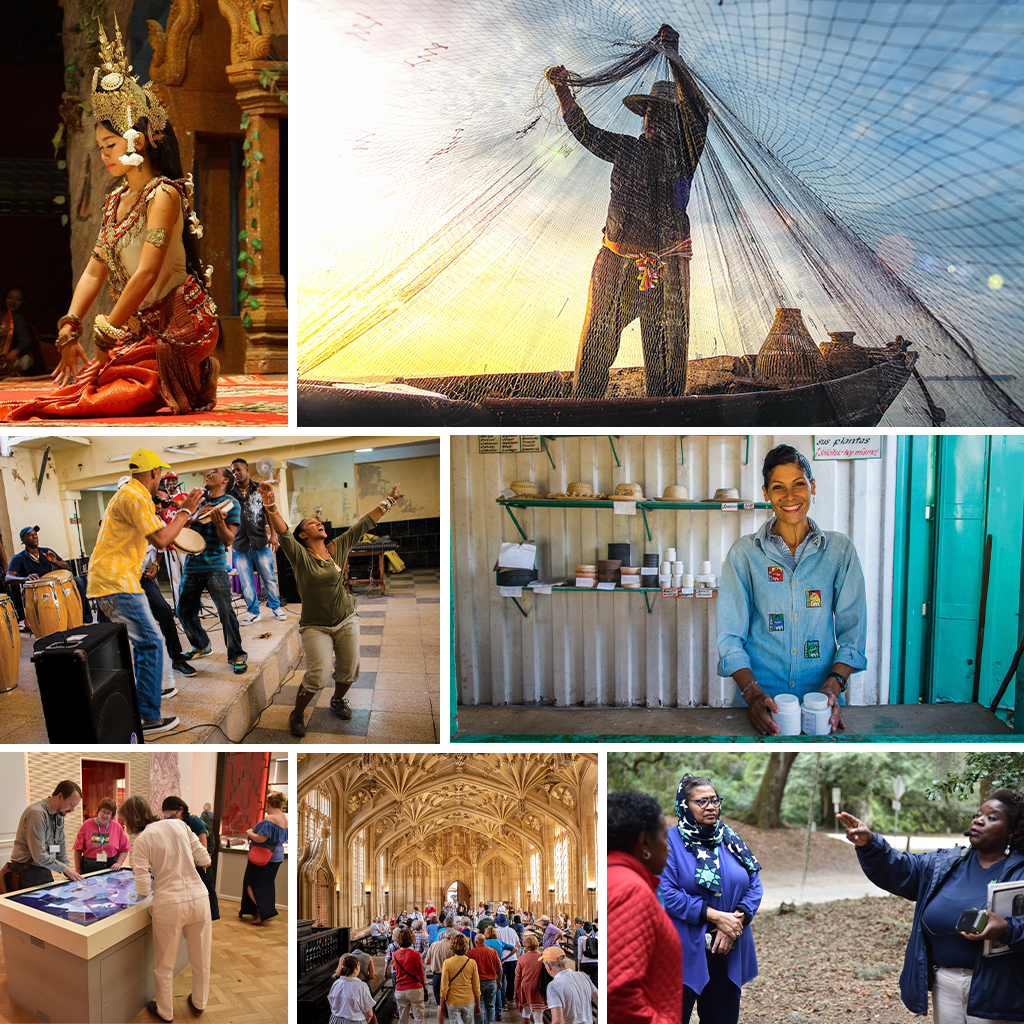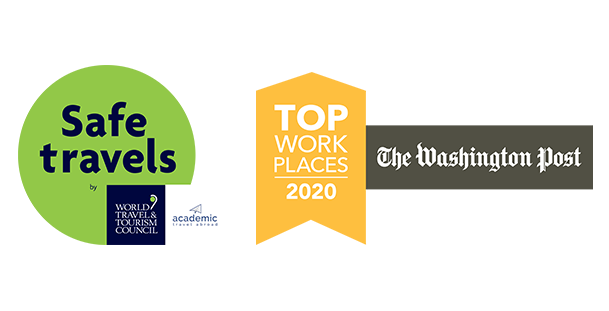
The Case FOR Travel: Life Enriched
by Kate Simpson, President
There was quite a brouhaha in the world of travel writing this summer. A professor of philosophy at the University of Chicago, Agnes Callard, wrote a piece in The New Yorker published at the end of June and entitled The Case Against Travel. Ross Douthat of The New York Times responded with his own counter-argument in late July. Then Arne Weissmann of Travel Weekly concluded a “mistrial” in early August. Not to mention many other sub-Reddits and social media discussions.
You can guess where I, as President of Academic Travel Abroad, land. While I won’t bore you with the synopsis of the various positions for and against travel, I do encourage you to read and consider these points of view. Here is my counter to Professor Callard:
- Travel, mobility, exploration, discovery, encounters—these are all essential and compelling human needs. This is one reason why we, at ATA, never failed to believe throughout the pandemic that travel would return and flourish once again. Even this National Geographic writer in September 2020 expressed a similar viewpoint: Travel is essential the way books and hugs are essential. Food for the soul. So while Callard claims it’s all about empty locomotion, which we also know to be critical to our health and wellbeing, the benefits extend far beyond exercise. Travel is a primal instinct.
- Travel is “an extension of one’s education, a deepening of knowledge,” as Douthat writes. Of course, there will always be those who travel for mindless entertainment and superficial Insta moments. (Humans are also allowed such interludes.) Callard seems to condemn all tourists and travelers to this category, a view I find condescending and conveniently simplistic.
- Travel connects and bonds—whether it be with your fellow travelers or the locals you encounter along the way. Callard describes travel as a lonely pursuit: During my Paris wanderings, I would stare at people, intently inspecting their clothing, their demeanor, their interactions. I was trying to see the Frenchness in the French people around me. This is not a way to make friends. Indeed, we do not travel to observe people as we would animals in their natural habitat, but rather to immerse ourselves in the local culture and assimilate as much as possible and learn new ways of living.
- Callard’s most emphatic claim is one I object to the most. She writes “the single most important fact about tourism is this: we already know what we will be like when we return… Travel is a boomerang. It drops you right where you started.” At Academic Travel Abroad, both a study abroad provider and an educational travel company, we have myriad examples of both students and travelers returning home changed in fundamental ways. I will cite just two:
- A Black student from New Orleans with high financial need, once a Katrina refugee, who had never left her state, let alone the country, goes to Taiwan to study Mandarin. She is a first-generation college student and her trajectory in life is forever altered. A world of possibilities opens for her. She now has a successful career in international finance and accounting and all her nieces and nephews are inspired to explore the world beyond their city.
- A group of trustees from a major national organization travel to Cuba. Some are liberal, some conservative, some Cuban American. All bring their own preconceptions about this island nation with them. All leave its shores with a fundamentally different understanding of U.S. policy toward Cuba. One offers to call his Congress person to lobby for change.
- A Black student from New Orleans with high financial need, once a Katrina refugee, who had never left her state, let alone the country, goes to Taiwan to study Mandarin. She is a first-generation college student and her trajectory in life is forever altered. A world of possibilities opens for her. She now has a successful career in international finance and accounting and all her nieces and nephews are inspired to explore the world beyond their city.
- Callard cites the disappointment of unmet expectations when traveling and how a traveler “outsources the vindication of his experiences to the ethnologist, to postcards, to conventional wisdom about what you are or are not supposed to do in a place. This deference, this “openness to experience,” is exactly what renders the tourist incapable of experience.” Yet it is when one experiences a dissonance with what we thought we knew to be true and what is true that growth, adaptability, resilience and self-awareness are augmented. It is in these moments that we question our existing values, our biases and our past education. Humility is expanded, and we are invited to embrace the unexpected, to settle into discomfort, and to open our hearts and minds to all that is not familiar.
Callard’s final salvo against travel is the fact that it is a way of denying we will all one day die: the prospect looms, terrifyingly, as “More and more of this, and then I die.” Travel splits this expanse of time into the chunk that happens before the trip, and the chunk that happens after it, obscuring from view the certainty of annihilation.
She’s right. Travel gives our lives meaning. Why? Because it educates, challenges, changes and enriches us in so many ways.
Please write to me at [email protected] to share your reaction to these articles.

